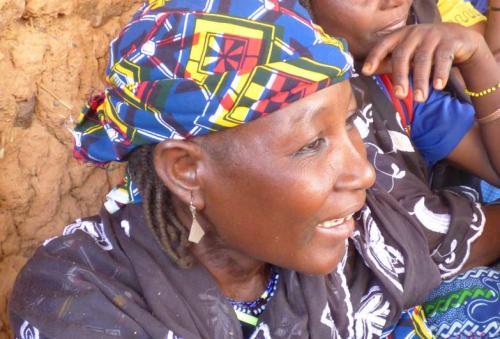Niger: “fifth wife” slavery practice outlawed
Big win for Hadijatou Mani, a woman forced into sexual slavery as a “fifth wife”, against her former master.
A decade-long legal battle of Hadijatou Mani, a woman forced into sexual slavery as a “fifth wife” ended with Niger outlawing the practice.

Hadijatou Mani
Hadijatou Mani, who as a young girl was sold for around £200 as a “fifth wife” to an older man, saw that “marriage” ruled unlawful by the Niger Court of Appeals, the country’s highest court. What’s more, the Court outlawed the “fifth wife” tradition altogether.
The “fifth wife”, or ‘wahaya’, slavery practice is when in addition to the four wives permitted by Islam, men take on additional ‘unofficial’ wives who are treated as domestic and sexual slaves.
In a practice that still persists in some areas in Niger and neighbouring countries, young girls and women are sold or trafficked to men, who treat additional wives as a symbol of their wealthy status. Fifth wives enjoy none of the rights of an official wife; no marriage ceremony ever takes place, and the woman or girl is essentially owned by their ‘master’.
Ms Mani’s fight, supported by Anti-Slavery International (ASI) and its local partner Timidria, has been a landmark case for tackling traditional slavery practices still persisting in Niger. In 2008 she won her case in the international Economic Community of West African States (ECOWAS) court, which ruled that the Nigerien Government failed to protect her from slavery, a judgment that reverberated in the country.
From “fifth wife” to anti-slavery hero
Hadijatou Mani was born into slavery and then sold as ‘fifth wife’. , Following her escape with the help of Timidria, she married a man she had freely chosen, whereupon her former master took her to court accusing her of bigamy.
Invoking customary law, the Nigerien court ruled in favour of her former master, sending Ms Mani for a brief spell in jail. This prompted her, supported by Anti-Slavery and Timidria, to take her complaint to the international ECOWAS Community Court of Justice, asserting that her government failed to protect her from slavery. She won the case, winning damages and prompting the Government of Niger to take slavery more seriously.
She has been living freely since, but shockingly, the courts did not annul the bigamy case against her. After a decade-long struggle for a new ruling, Ms Mani finally saw justice: the Court ruled that her freely chosen marriage was not a case of bigamy.
The ruling has implications for other women who have escaped their masters, and might affect Mani’s former master who allegedly still has other “fifth wives”.
The rulings of the Court of Appeals, the highest judicial body in Niger, have legal implications for the lower courts where they have diverged in the application of the law and custom.
Source:Anti-Slavery
- 424 reads
Human Rights
Fostering a More Humane World: The 28th Eurasian Economic Summi

Conscience, Hope, and Action: Keys to Global Peace and Sustainability

Ringing FOWPAL’s Peace Bell for the World:Nobel Peace Prize Laureates’ Visions and Actions

Protecting the World’s Cultural Diversity for a Sustainable Future

Puppet Show I International Friendship Day 2020

